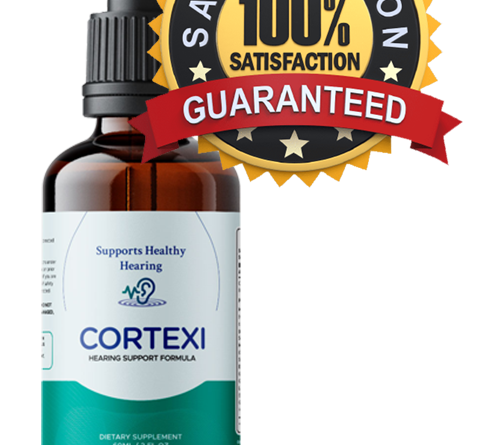
Disclaimer: This post may contain affiliate links. As an Amazon Associate, we earn from qualifying purchases.
Are you wondering how to determine if you are physically healthy? Look no further! With our product, “How Do I Know If I Am Physically Healthy?”, you will be able to easily assess your physical well-being and gain valuable insights into your overall health. Say goodbye to uncertainty and take control of your well-being today!
Signs of Physical Health
Healthy Body Weight
Maintaining a healthy body weight is an important indicator of physical health. It is often measured using the body mass index (BMI), which takes into account your height and weight. A healthy BMI range is typically between 18.5 and 24.9. Being within this range indicates that you are at a healthy weight for your height, reducing the risk of various health conditions such as heart disease, diabetes, and joint problems. Regularly monitoring your body weight and striving to maintain it within the healthy range is crucial for your overall physical well-being.
Regular Exercise
Engaging in regular exercise is another key aspect of physical health. Exercise helps to strengthen and tone your muscles, improve cardiovascular health, enhance flexibility, and boost your overall fitness levels. Aim for at least 150 minutes of moderate-intensity aerobic activity or 75 minutes of vigorous-intensity aerobic activity every week, along with muscle-strengthening activities at least twice a week. Regular exercise not only improves your physical health but also enhances your mental well-being, reduces stress, and promotes better sleep.
Good Sleep Quality
Getting sufficient and quality sleep plays a vital role in maintaining your physical health. Sleep is the time when your body repairs and rejuvenates itself. Lack of sleep can lead to a variety of health issues, including weight gain, weakened immune system, difficulty concentrating, and increased risk of chronic conditions such as diabetes and heart disease. Aim for 7-9 hours of uninterrupted sleep every night, create a relaxing bedtime routine, and ensure your sleeping environment is conducive to quality sleep. If you have trouble sleeping, it may be helpful to practice relaxation techniques or consult a healthcare professional.
Balanced Diet
Following a balanced diet is essential for your physical health. Ensure that your diet includes a variety of fruits, vegetables, whole grains, lean proteins, and healthy fats. These provide the necessary nutrients, vitamins, and minerals your body needs to function properly. Avoid excessive intake of processed foods, sugary snacks, and saturated fats, as these can lead to weight gain and an increased risk of chronic diseases. A balanced diet helps maintain a healthy body weight, provides energy for daily activities, boosts your immune system, and supports overall well-being.
Strong Immune System
A strong immune system is crucial for fighting off infections and keeping you healthy. Several factors, such as a balanced diet, regular exercise, good sleep, and managing stress, contribute to a robust immune system. Consuming foods rich in vitamins C, D, and E, minerals like zinc and selenium, and probiotics can help strengthen your immune system. Engaging in regular exercise improves circulation, allowing immune cells to reach different parts of your body effectively. Adequate sleep and stress management also play a vital role in maintaining a strong immune system. Making conscious efforts to support your immune system can significantly contribute to your overall physical health.
Physical Appearance
Clear Skin
Your skin is a reflection of your overall physical health. A clear and glowing complexion indicates good internal health. Eating a balanced diet rich in antioxidants, vitamins, and minerals helps nourish your skin and maintain its health. Additionally, staying hydrated, protecting your skin from harmful UV rays, and using suitable skin care products can contribute to a clearer complexion. If you have concerns about your skin, it is advisable to consult a dermatologist for professional advice and personalized care.
Shiny Hair
Having shiny, lustrous hair is often associated with good physical health. Hair health can be influenced by various factors such as genetics, nutrition, hair care routine, and overall well-being. A diet rich in essential nutrients such as vitamins A, C, D, E, and minerals like iron and zinc promotes healthy hair growth. Avoiding excessive heat styling, using gentle hair care products, and protecting your hair from environmental damage can also contribute to shinier and healthier hair. If you experience significant hair problems, it is recommended to seek guidance from a trichologist or hair care professional.
Bright Eyes
Bright and clear eyes are not only aesthetically pleasing but also an indicator of good physical health. Maintaining eye health involves various factors such as proper nutrition, regular eye exams, and protecting your eyes from harmful UV rays and digital screens. Consuming foods rich in antioxidants, omega-3 fatty acids, and vitamins A, C, and E supports eye health. Additionally, practicing good eye hygiene, wearing sunglasses, and taking regular breaks from digital devices can help prevent eye strain and maintain bright, healthy eyes. If you have concerns about your eye health, it is important to consult an eye care professional.
Good Posture
Having good posture is essential for overall physical health. Proper alignment of the spine and appropriate distribution of body weight helps reduce the risk of musculoskeletal problems, such as back pain and joint issues. Maintaining good posture involves being mindful of your body alignment while sitting, standing, and walking. Engaging in exercises that strengthen core muscles, practicing yoga or Pilates, and ensuring proper ergonomics in your work or home environment can significantly improve your posture. If you struggle with maintaining good posture, a physical therapist or posture specialist can provide guidance and exercises tailored to your needs.
Healthy Nails
The condition of your nails can provide insights into your physical health. Healthy nails are typically smooth, strong, and free from discoloration or abnormalities. Proper nail care, including regular trimming and moisturizing, is essential for maintaining their health. A balanced diet rich in protein, vitamins, and minerals contributes to stronger nails. Avoiding excessive exposure to water and harsh chemicals, using gloves for household chores, and applying a protective base coat can help prevent nail damage. If you notice persistent nail problems, consulting a dermatologist or a nail care professional can help identify and address any underlying issues.

This image is property of images.unsplash.com.
Energy Levels
Consistent Energy throughout the Day
Feeling consistently energized throughout the day is an indication of good physical health. Adequate sleep, regular exercise, and a balanced diet all play a vital role in maintaining consistent energy levels. Getting enough sleep allows your body to recharge, resulting in higher energy levels during waking hours. Engaging in regular exercise improves cardiovascular health, enhances oxygen and nutrient delivery to your tissues, and boosts overall energy. Consuming a well-rounded diet that includes complex carbohydrates, lean proteins, and healthy fats ensures a steady release of energy throughout the day. If you consistently experience low energy levels, it may be a good idea to consult a healthcare professional to rule out any underlying medical conditions.
Ability to Perform Daily Activities without Fatigue
Being able to perform your daily activities without experiencing excessive fatigue is an important sign of physical health. Everyday tasks such as walking, climbing stairs, carrying groceries, and participating in recreational activities should be manageable without feeling overly tired or breathless. Regular exercise, cardiovascular fitness, and maintaining a healthy body weight all contribute to improved endurance and stamina. If you find that basic activities leave you fatigued, it is advisable to consult a healthcare professional to determine the underlying cause and appropriate interventions.
Cardiovascular Health
Normal Heart Rate
A normal heart rate is an essential indicator of cardiovascular health. It refers to the number of times your heart beats per minute and can vary depending on factors such as age, fitness level, and activity level. A resting heart rate between 60 and 100 beats per minute is generally considered normal for adults. Regular cardiovascular exercise, maintaining a healthy weight, managing stress levels, and avoiding tobacco use contribute to a healthy heart rate. If you have concerns about your heart rate, it is recommended to consult a healthcare professional for further evaluation.
Normal Blood Pressure
Monitoring your blood pressure is crucial for assessing your cardiovascular health. Blood pressure measures the force exerted by blood against the walls of your arteries. A healthy blood pressure reading is typically around 120/80 millimeters of mercury (mm Hg). Regular exercise, a balanced diet, limiting sodium intake, managing stress, and avoiding tobacco use all contribute to maintaining healthy blood pressure levels. Periodically checking your blood pressure and seeking medical advice if it consistently falls outside the normal range is important for your overall cardiovascular well-being.
Adequate Blood Circulation
Good blood circulation is necessary for transporting oxygen and nutrients to various organs and tissues in your body. Signs of adequate blood circulation include warm extremities, regular skin color, and the absence of tingling or numbness. Regular exercise, maintaining a healthy weight, managing cholesterol levels, and avoiding smoking or excessive alcohol intake all contribute to optimizing blood circulation. If you experience symptoms such as cold hands and feet, persistent tingling or numbness, or changes in skin color, it is advisable to consult a healthcare professional to assess your blood circulation.
Respiratory Health
Normal Breathing Rate
A normal breathing rate is a vital sign of good respiratory health. It refers to the number of breaths you take per minute. At rest, a normal adult breathing rate is typically between 12 and 20 breaths per minute. Exercise, stress, and certain medical conditions can affect your breathing rate temporarily. However, consistently abnormal breathing rates may be indicative of respiratory issues. Engaging in regular aerobic exercise, maintaining good posture, avoiding smoking or exposure to secondhand smoke, and practicing deep breathing exercises can help improve respiratory health. If you consistently experience abnormal breathing patterns or respiratory distress, it is important to seek medical attention.
Clear Lungs
Having clear lungs is essential for optimal respiratory health. Normal lung function allows for efficient exchange of oxygen and carbon dioxide. Avoiding exposure to tobacco smoke and pollutants, practicing good hygiene, and maintaining good overall health can contribute to clear lungs. Engaging in regular exercise helps improve lung capacity and efficiency. If you experience persistent coughing, wheezing, chest pain, or difficulty breathing, it is imperative to consult a healthcare professional for a thorough evaluation of your respiratory health.
Muscular Strength and Flexibility
Ability to Lift and Carry Weight
Having adequate muscular strength is important for performing daily activities without difficulty. It allows you to lift and carry objects without experiencing undue strain or muscle fatigue. Engaging in regular strength training exercises, such as weightlifting or resistance training, helps build and maintain muscular strength. Gradually increasing the weight or resistance used in your workouts challenges your muscles and improves overall strength. Proper form and technique are crucial to prevent injuries. If you struggle with lifting or carrying ordinary objects or experience persistent muscle weakness, it is advisable to consult a healthcare professional for guidance.
Ability to Bend and Stretch
Maintaining flexibility is essential for joint health and overall physical performance. The ability to bend and stretch your body without pain or limitations is indicative of good physical health. Regular stretching exercises, yoga, or Pilates can improve flexibility and range of motion in your joints. Incorporating stretching into your exercise routine or practicing dedicated stretching sessions can help maintain flexibility. If you experience persistent difficulty or pain while bending or stretching, it is recommended to consult a healthcare professional for further evaluation.
Maintaining Good Balance
Maintaining good balance is crucial for preventing falls and maintaining mobility. Strong muscles, joint flexibility, and a healthy nervous system contribute to good balance. Engaging in activities that challenge your balance, such as yoga, tai chi, or balance exercises, can help improve and maintain your balance. If you consistently struggle with balance or experience frequent falls, it is important to consult a healthcare professional for a thorough assessment and appropriate interventions.

This image is property of images.unsplash.com.
Joint Health
Flexible Joints
Having flexible joints is essential for performing everyday movements without discomfort or limitations. Regular exercise, including strength training and stretching, helps maintain joint flexibility. Additionally, staying hydrated, consuming a nutritious diet, and managing weight contribute to good joint health. If you experience persistent joint stiffness, pain, or limited range of motion, it is advisable to consult a healthcare professional to assess your joint health.
No Joint Pain
Absence of joint pain is an indication of good joint health. Healthy joints should allow for smooth and pain-free movement. Maintaining a healthy weight, engaging in regular physical activity, practicing proper body mechanics, and avoiding excessive stress on your joints can help prevent joint pain. If you consistently experience joint pain or discomfort, it is important to consult a healthcare professional to identify and address any underlying issues.
Normal Range of Motion
Having a normal range of motion in your joints allows for fluid movements and optimal physical function. Regular exercise and stretching help maintain or improve your range of motion. Joint-specific exercises that target flexibility and mobility, such as yoga or physical therapy exercises, can be beneficial. If you notice a persistent limitation in your range of motion or difficulty performing everyday activities due to joint stiffness, it is recommended to consult a healthcare professional for further evaluation and appropriate interventions.
Digestive System Functioning
Regular Bowel Movements
Having regular bowel movements is an indication of good digestive system functioning. The frequency, consistency, and ease of passing stools can vary from person to person. However, a healthy digestive system typically involves regular, soft, and well-formed bowel movements. Consuming a high-fiber diet, staying hydrated, engaging in regular physical activity, and managing stress all contribute to healthy digestion and regular bowel movements. If you consistently experience digestive issues, such as constipation or diarrhea, it is advisable to consult a healthcare professional for evaluation and guidance.
No Digestive Disorders
Absence of digestive disorders, such as irritable bowel syndrome, gastroesophageal reflux disease, or inflammatory bowel disease, is indicative of good digestive health. Following a balanced diet, avoiding excessive intake of fatty or spicy foods, practicing portion control, and maintaining a healthy weight contribute to optimal digestive system functioning. If you experience persistent digestive symptoms or have concerns about your digestive health, it is important to consult a healthcare professional for a thorough evaluation and appropriate management.
Mental Well-being
Positive Mood
Having a positive mood is an essential aspect of overall well-being. Mental well-being is closely linked to physical health, and a positive mindset positively influences physical health outcomes. Engaging in activities that bring joy, practicing relaxation techniques, maintaining social connections, and seeking support when needed all contribute to a positive mood. If you consistently struggle with negative moods, feelings of sadness or hopelessness, or have concerns about your mental well-being, it is important to reach out to a mental health professional for guidance and support.
Good Mental Focus and Concentration
Being able to maintain good mental focus and concentration is crucial for productivity and overall well-being. Engaging in activities that challenge the brain, getting sufficient sleep, practicing stress management techniques, and maintaining a balanced diet all support optimal cognitive function. If you consistently experience difficulty concentrating, memory problems, or changes in cognitive abilities, it is advisable to consult a healthcare professional for further evaluation.
Ability to Manage Stress
Being able to effectively manage and cope with stress is an important aspect of overall health. Prolonged or excessive stress can negatively impact physical health and increase the risk of various health conditions. Engaging in stress management techniques such as mindfulness, deep breathing exercises, physical activity, or seeking support from friends, family, or professionals can help manage stress levels. If you consistently struggle with stress or feel overwhelmed, it is recommended to seek guidance from a healthcare professional or a mental health specialist.
Adequate Hydration
Clear Urine
Monitoring the color of your urine can provide insights into your hydration status. Clear or pale yellow urine generally indicates adequate hydration. On the other hand, dark-colored urine may suggest dehydration. Staying hydrated is crucial for proper bodily functions, including digestion, circulation, and temperature regulation. Drinking an adequate amount of water throughout the day, consuming hydrating foods and beverages, and being mindful of your body’s fluid needs contribute to optimal hydration. If you consistently notice dark-colored urine or have concerns about your hydration levels, it is important to increase your fluid intake and consult a healthcare professional if necessary.
No Dehydration Symptoms
Absence of dehydration symptoms such as excessive thirst, dry mouth, fatigue, dizziness, or reduced urine output is indicative of adequate hydration. Staying hydrated is essential for overall physical health and well-being. If you experience persistent dehydration symptoms, it is important to increase your fluid intake and seek medical attention if necessary.
In conclusion, there are numerous signs and indicators that can help assess your physical health. Monitoring your body weight, engaging in regular exercise, getting sufficient sleep, consuming a balanced diet, and maintaining a strong immune system are key factors in maintaining physical well-being. Physical appearance, energy levels, cardiovascular and respiratory health, muscular strength and flexibility, joint health, digestive system functioning, mental well-being, and hydration are all important aspects to consider. By paying attention to these signs and seeking professional guidance when necessary, you can ensure that you are on the right track towards maintaining and improving your physical health. Remember to prioritize your physical well-being, as it forms the foundation for an active and fulfilling life.
As an Amazon Associate, we earn from qualifying purchases.















